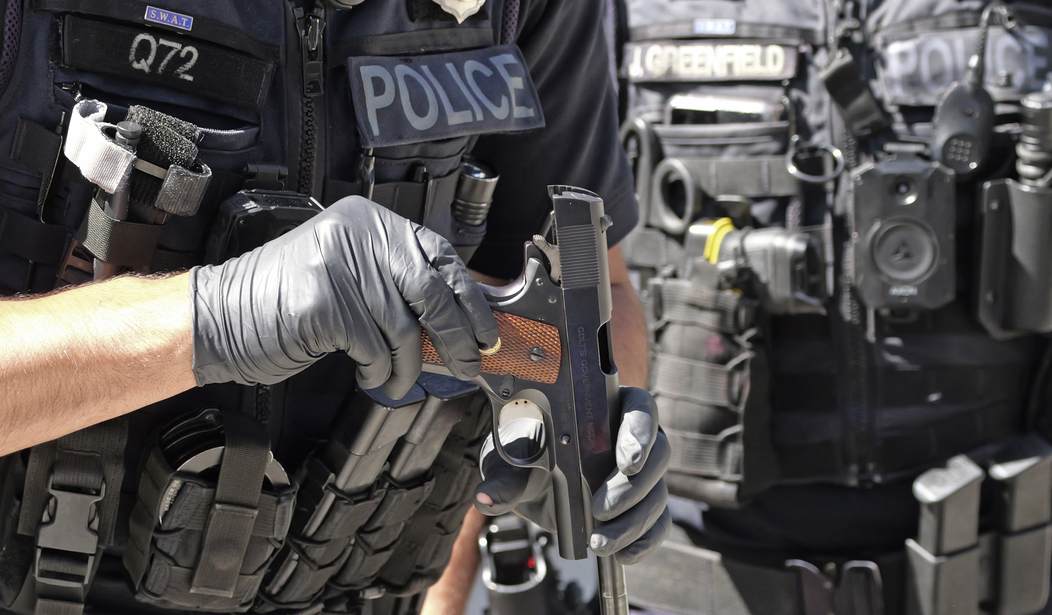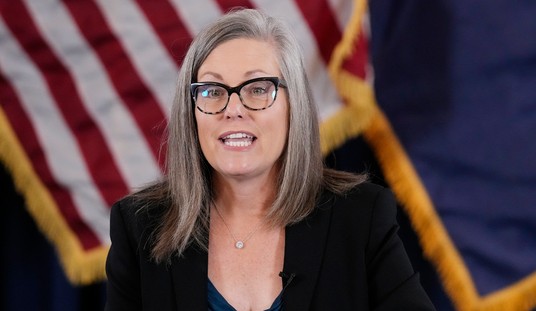There is absolutely no evidence that gun "buyback" events reduce crime, suicide, or accidents involving firearms, but the compensated confiscation events are still hugely popular with Democratic politicians thanks to the positive headlines they generally generate in the local press.
In San Antonio, councilman (and mayoral candidate) John Courage managed to convince donors to pony up more than $150,000 to pay for a "buyback" last November that took in about 933 firearms. While most of the guns turned over in exchange for gift cards could be classified as "garbage guns", there were apparently a few collectible and historical pieces that were handed in as well... and according to the San Antonio police, at least three of them ended up in the hands of a cop who was working the "buyback".
A San Antonio police officer was fired after officials say he took two shotguns and one handgun forfeited by residents during a city gun buyback program and placed them in his personal vehicle. Two of the weapons were never recovered.
Officer David Mahula, an 18-year veteran of the force, was issued an indefinite suspension, which is tantamount to firing, on May 9 for allegedly breaking a handful of department administrative rules, according to disciplinary records.
Mahula, in an appeal filed May 10, denied the allegations and asked for an arbitration hearing as outlined in the city’s contract with the police union. Mahula is seeking back pay and lost benefits.
Mahula was called out by an aide to Courage, who allegedly saw the officer place the shotgun and pistol in his vehicle. When the officer spoke to detectives about the incident in December, he said he separated the guns from others being turned in because of their historical significance, and he pulled nine boxes of ammunition from the turn-in so it could be destroyed at the department's range.
But something about Mahula's story didn't add up, according to investigators.
Mahula provided detailed descriptions of the rifles, and rifles matching those descriptions were found in the property room. But detectives later determined those guns were not the ones that Mahula had taken, the records state.
Shortly after Mahula gave his initial statement, [Courage aide Bryan] Naylor was shown photographs of the two rifles Mahula described, the records state. Naylor told detectives that the guns he saw Mahula place in his vehicle appeared to be shotguns, not rifles.
Detectives also reviewed COBAN footage that was taken from officers’ patrol vehicles. That footage showed Mahula placing long guns into his personal vehicle — not rifles, the records state.
Whoops! Probably an innocent mistake, right? Mahula just got a little confused with the hundreds of guns that were turned over, right?
Right?
Two SAPD officers working at Mahula’s tent during the event told detectives they had questioned Mahula about a U.S. government-issued Colt handgun they heard was being turned in.
“One of these officers reported that Officer Mahula responded to their inquiry by placing a finger over his lips, and the other officer reported that Officer Mahula made a facial expression that the officer interpreted as ‘be quiet,’” the records state.
The two long guns Mahula allegedly took were never recovered, the records indicate.
That doesn't sound like an innocent mistake after all, though it should be noted that Mahula is fighting his firing; seeking a reinstatement along with back pay. And maybe there's more to this story than what the San Antonio News-Express has reported to date. Mahula wasn't charged with a crime for allegedly taking the guns from the turn-in event, but according to the paper he was cited internally by the SAPD for violating several rules and regulations.
Did the "buyback" have any impact beyond Mahula losing his job? It doesn't look like it. Police in April reported that violent crime is trending down this year, but they didn't cite Courage's turn-in event as a reason. Instead, the department is pointing to its targeted deterrence efforts; what they call "hot spot" policing.
San Antonio's police department began hot spot policing in 2023. It's the first phase of the Violent Crime Reduction Plan that University of Texas at San Antonio researchers created for the city.
- The method involves officers sitting in marked police cars for 15 minutes in identified "hot spots" where violent crime is most likely to occur.
The latest: Rob Tillyer, a UTSA criminology professor, told council members Tuesday that violent crime, including murders, was no longer increasing in those hot spot areas — achieving the plan's goal.
- "We're substantially impacting the level of violence in those locations," Tillyer said. "And that, indirectly then, is having an effect on our citywide levels of violence."
- The crime does not appear to be relocating to other areas nearby, per Tillyer.
That's good news, but it has nothing to do with Courage's compensated confiscation event. Gun "buybacks" continue to be a waste of time and money in terms of fighting crime and reducing violence, but they're still of value to those anti-gun politicians who want credit for "doing something" in their communities.








Join the conversation as a VIP Member